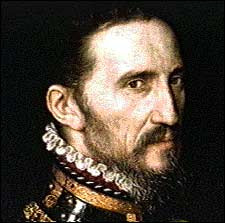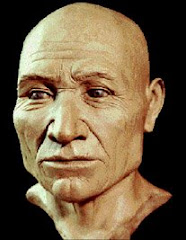Monday, May 31, 2010
Thursday, May 27, 2010
Thursday, May 27th
Review for the Creating a New Nation test tomorrow. This test will cover the Roots of Representative Government, the Road to Revolution, and the War for American Independence.
Monday, May 24, 2010
Monday, May 24th
 Mr. M returns from war and it is 85 degrees and humid in the room! The students did well trying to focus. Today we talked about the 2nd online review quiz the students did. Mr. M spent time talking about the layout of the DOI - what does it say? Also, we got into the British campaign of 1777. The Burgoyne attempt to come down Lake Champlain and take Albany.
Mr. M returns from war and it is 85 degrees and humid in the room! The students did well trying to focus. Today we talked about the 2nd online review quiz the students did. Mr. M spent time talking about the layout of the DOI - what does it say? Also, we got into the British campaign of 1777. The Burgoyne attempt to come down Lake Champlain and take Albany. Thursday, May 20th and Friday May 21st
Mr. M has gone to war! I am at Fort Ticonderoga, NY for the 15th annual War College on the French and Indian War. The students will be learning about the importance of the Declaration of Independence and what it says. They will also continue to look at the war itself - the Olive Branch Petition, Common Sense, Declaring Independence, The Battle of Long Island, the American Crisis, and Trenton!
Wednesday, May 19, 2010
Tuesday, May 18, 2010
Tuesday, May 18th
The Battle of Bunker Hill and the lesson of the importance of holding the High Ground! Also, took a look at the 2nd Continental Congress, the choosing of George Washington as the General in command of the new "Continental Army". Not much of an army though! We went outside and reenacted the battle of Bunker Hill on the berm behind school. It was fun!
Monday, May 17, 2010
Monday, May 17th
The Shot Heard Round the World! Watched the Liberty series on the Betrayal felt by the British. Then we watched the segment on Lexington and Concord. Mr. M then gave more to the story. The students then reenacted the entire 15 mile march to Concord from Boston. We geared up with our heavy back packs grabbed our muskets (stick) and headed out! Along the way Mr. M explained more of what happened that day.
Friday, May 14th
Continued the Road to Revolution - a look at the Boston Tea Act, the Tea Party, the British response - Coercive Acts, and the first meeting of the Continental Congress. Students finished presenting their part of the timeline. We drank tea to commemorate the whole event!
Thursday, May 13, 2010
Thursday, May 13th
 Today we began with the Declaratory Act, Townshend Acts, the Arrival of British Regulars in Boston, and ended with the "Massacre".
Today we began with the Declaratory Act, Townshend Acts, the Arrival of British Regulars in Boston, and ended with the "Massacre". Wednesday, May 12, 2010
Wednesday, May 12th
Moving right along the Road to Revolution - today we discussed the Stamp Act (big leap towards revolution), the Quartering Act, and the forming of the Sons of Liberty, some classes started the Declaratory Act. We viewed parts of the Liberty series to enhance our understanding of these important events.
Tuesday, May 11, 2010
Tuesday, May 11th
Began learning about the Road to Revolution in earnest. Timelines are done and we will be using the PBS series Liberty to supplement the different acts and events that lead to Lexington and Concord on April 19th, 1775. Today we began with a look at the colonies themselves in the early 1760s. The American colonies were but an outpost of the vast British Empire. The colonies were largely rural. There were over 50 billion trees. Only a few dirt paths connected the colonies.There were only a few "big" cities with about 10000 occupants - NY, Philly, Charleston, and Boston. Life was pretty good. America was the "land of opportunity" especially now that the vast Ohio wilderness was open. People here enjoyed a standard of living better than most places in the world. Americans were, on average, two inches taller than people back in merry, old England. People lived longer here. More children survived past the early years and families were bigger! No one is thinking about "independence" or "war for freedom", etc... Then we talked about the early controversial acts - the Proclamation of 1763 (one eyebrow raised), the Sugar Act of 1764 (two eyebrows raised), and the Stamp Act of 1765 (Hey, what's going on?)
Sunday, May 9, 2010
Comment for Johnny Tremain from Part 1 (pages 1-75)
Just enter your comment below for Johnny! I will check them out and give you credit. This is especially important to people that may have not done well on the first 10 question quiz!
"Did you feel sorry for Johnny when his hand was so awfully burned? Why or why not? Was this Divine Justice? Explain"
"Did you feel sorry for Johnny when his hand was so awfully burned? Why or why not? Was this Divine Justice? Explain"
Thursday, May 6, 2010
Thursday, May 6th, Friday, May 7th, and Monday, May 10th!!
The Road to Revolution begins - in the media lab today. The students were assigned their "event" or "act" which helped bring about the American War for Independence. We will start to review their work and actually walk the steps of the Road to Revolution on Tuesday, May 11th.
Wednesday, May 5, 2010
Wednesday, May 5th
2. Continued our look at the French and Indian War. Focused on the problems that remain after the Treat of Paris is signed - a. indians still fighting (Pontiac's rebellion) and b. the piggy bank in London is empty - the war (remember the French and Indian war ignites into a real world war - the Seven Years War - between France and England) has cost muchos pounds! So, two problems - two solutions right? To address the indian problem - the Proclamation of 1763 is enacted. To address the war debt problem - taxation of the colonies will commence. Both of these will anger folks in the colonies because A. it brings about an end to Benign (Healthy) Neglect - colonies essentially governing themselves/left alone (Hands Off governing will become Hands ON!) and B. Colonists view themselves as Englishmen and thus have the "Rights of Englishmen!" one of these rights "no taxing unless representatives agree" is ignored - no colonist is ever elected to parliament or allowed to - yet parliament will tax the colonies! ARRRRGGH
3. Students were assigned their role in the "Road to Revolution" when we make our interactive timeline.
Tuesday, May 4, 2010
Tuesday, May 4th
 The French and Indian War - began with the account of Washington's first combat experience in the Wilderness on May 28, 1754 form the book The Crucible of War. This was one of the first skirmishes of the French and Indian war. Transitioned into the war itself - what were the sides, who fought with whom, what was at stake, North American in 1754 and then in 1763, 18th century warfare European style and Indian style, the siege of Ft. William Henry (1757) and footage from The Last of the Mohicans.
The French and Indian War - began with the account of Washington's first combat experience in the Wilderness on May 28, 1754 form the book The Crucible of War. This was one of the first skirmishes of the French and Indian war. Transitioned into the war itself - what were the sides, who fought with whom, what was at stake, North American in 1754 and then in 1763, 18th century warfare European style and Indian style, the siege of Ft. William Henry (1757) and footage from The Last of the Mohicans.Monday, May 3, 2010
Monday, May 3rd
Our final unit of the year - Creating a New Nation - began today. This will take us all of the way to May 28th. Began with THE SITUATION - "setting the stage" so to speak on what was happening in the colonies that lead to an event that probably never should have happened - the American Revolution. In the mid-1700's the American colonies were enjoying one of the highest standards of living in the world (even better than people back in merry, old England!) They enjoyed the protection of a powerful empire (the British), were pretty much extended the same "Rights of Englishmen" as those in England, and were allowed to flourish and thrive due to the unofficial policy adopted by the British goverment from 1607-1763 - the policy of Salutory Neglect (healthy neglect). The old adage is Don't Bite the Hand that Feeds You - well the Americans bit and tore it off! The question is - why? Some event must have changed everything - it did - and the event was The French and Indian War - our topic tomorrow!
Subscribe to:
Posts (Atom)



















